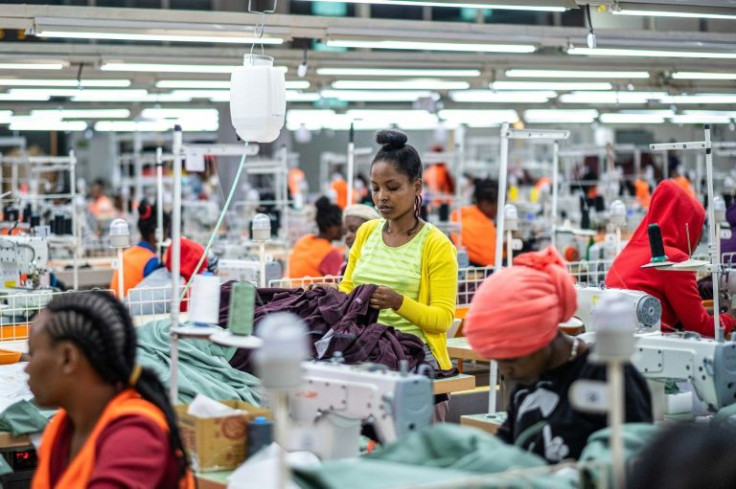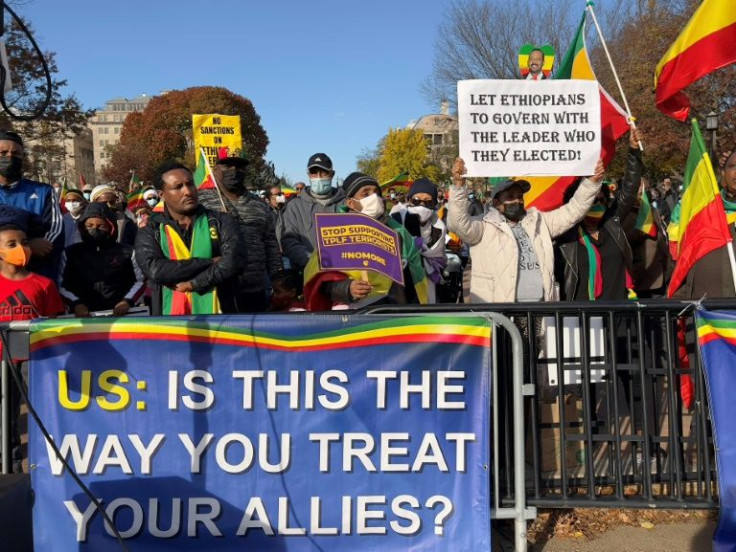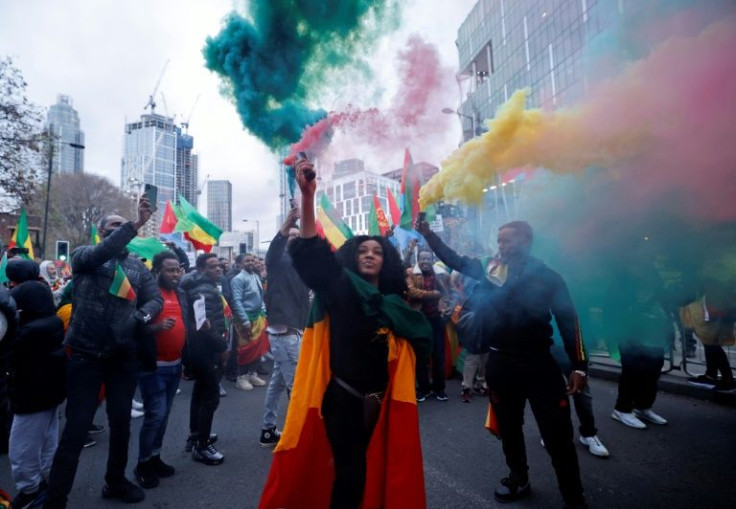Conflict-hit Ethiopia Set To Exit US Trade Pact Despite Late Push
Ethiopia is set on January 1 to lose key trading privileges in the United States over rights concerns, despite a last-minute push backed by diaspora members who warn that Washington could lose an ally.
President Joe Biden on November 2 announced the New Year's removal of Ethiopia, a longtime US partner and the continent's second most populous country, from the African Growth and Opportunity Act as he pointed to "gross violations" in the year-old war with Tigrayan rebels.
The Ethiopian government has lobbied hard against the move and estimates that one million jobs have been supported directly or indirectly by the 2000 law, which grants duty-free access for most goods.

The chairs of the Senate and House subcommittees on Africa both urged Biden in a letter to reconsider the "abrupt" move, saying that a recent rebel retreat provided an opening for diplomacy.
"We are concerned that suspension of AGOA benefits will be counterproductive and disproportionately harm the most vulnerable Ethiopians without contributing to the cessation of hostilities," wrote Senator Chris Van Hollen and Representative Karen Bass, both members of Biden's Democratic Party.
"Furthermore, this decision invites China to strengthen its economic foothold in the Horn of Africa."
Van Hollen and Bass both represent constituencies with hubs of Ethiopian-Americans, a community estimated at anywhere from 250,000 to one million strong that has increasingly flexed political muscle over the war.

Mesfin Tegenu, chairman of the American-Ethiopian Public Affairs Committee, acknowledged Biden was unlikely to reverse the decision before January 1 but said the president could readmit Ethiopia "with a stroke of a pen."
He described Prime Minister Abiy Ahmed's government as "the most pro-Western the country has ever had" and said ending trade privileges was only inviting China -- which has been expanding influence in Africa and has made a point of criticizing Biden's decision.
"This is going to be a catastrophic mistake for our country to really be replaced willingly by a competitive power," Mesfin said.
"Whatever political gain the administration would think they would get by doing this, they're not going to get it, because the geopolitical situation of the world has changed."

Biden also removed coup-hit Mali and Guinea from AGOA. In announcing the decision, the administration said the three countries could re-enter if they address concerns.
Jeffrey Feltman, the US special envoy for the Horn of Africa, noted that Congress imposed conditions when establishing AGOA.

"The legislation says the countries that engage in gross violation of human rights will not enjoy these trade privileges. So it's a statutory requirement that the administration took," he told National Public Radio.
US Trade Representative Katherine Tai's office, which administers AGOA, did not respond to requests for comment.
Abiy launched an offensive in November 2021 as the Tigray People's Liberation Front, once a dominant force in Ethiopia, attacked army sites.
The rebels advanced so far this year that they threatened to march on the capital Addis Ababa but by December 20 they had withdrawn back to their Tigray stronghold, with the government promising no further advance.
But US concerns go beyond reaching a ceasefire in the wake of wide reports of mass killings, sexual violence and hunger in the conflict that has left thousands dead.
The United States, as well as the United Nations and rights groups, say the Ethiopian government has deliberately hindered aid delivery to northern regions where millions face famine-like conditions.
"Frankly, it's unconscionable, and not what we would expect from Ethiopia," the US ambassador to the United Nations, Linda Thomas-Greenfield, said last month.
The administration strenuously denies taking sides and has also criticized the TPLF and neighboring Eritrea.
But many in the diverse Ethiopian diaspora remain convinced of bias against Abiy, who was elected in 2018 on promises of unity and won the Nobel Peace Prize.
Tebabu Assefa, an Ethiopian immigrant who was honored by former president Barack Obama for his work importing coffee directly from small-time farmers, said Biden was "taking a tool from the garage to the surgery room."
He said his Blessed Coffee business in Maryland was in conversation with unions representing 500,000 farmers, each of whom has about five family members.
"The livelihood of millions and millions of small farmers will be wiped out by this simple yet very devastating act," he said.
© Copyright AFP {{Year}}. All rights reserved.





















